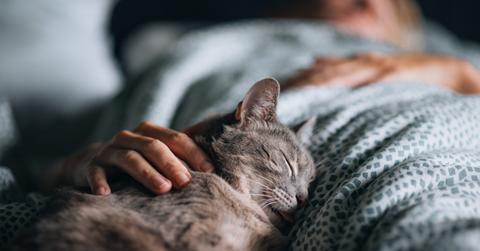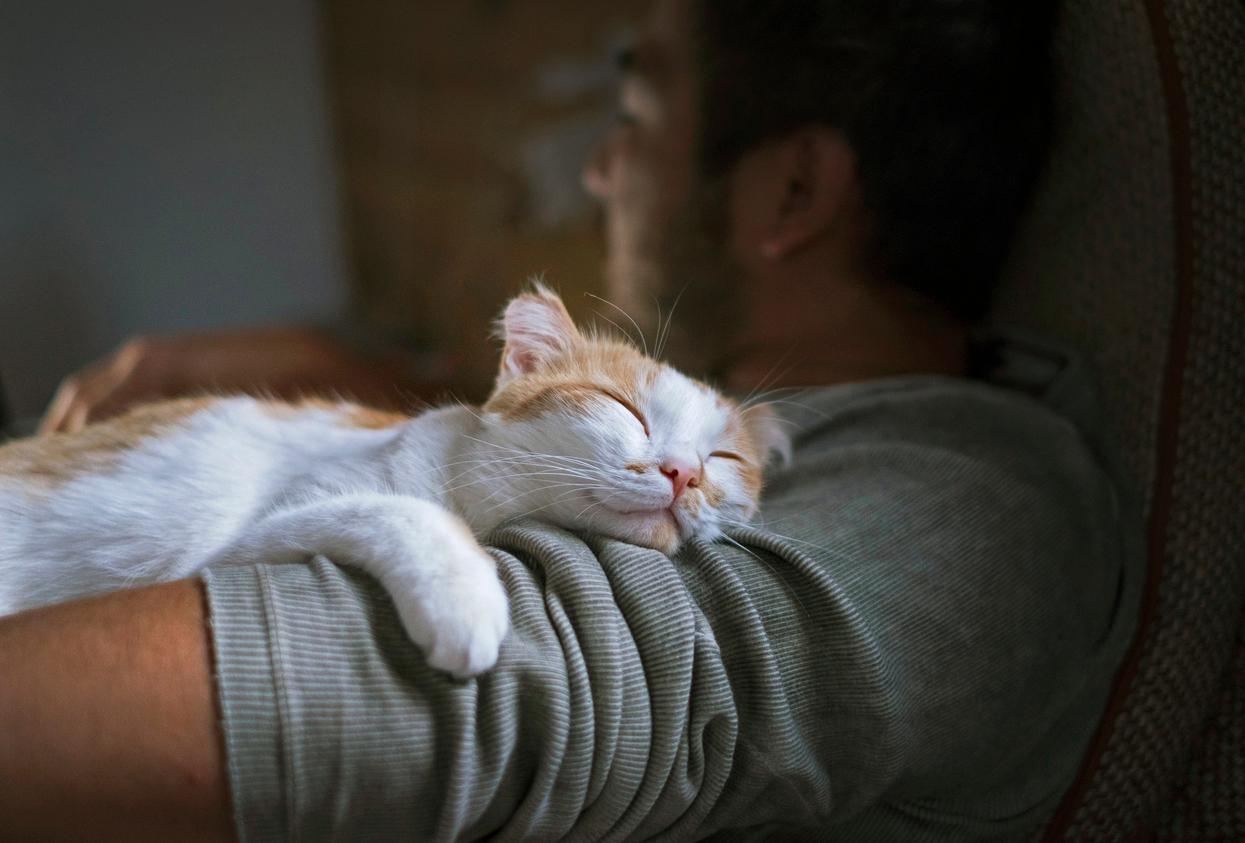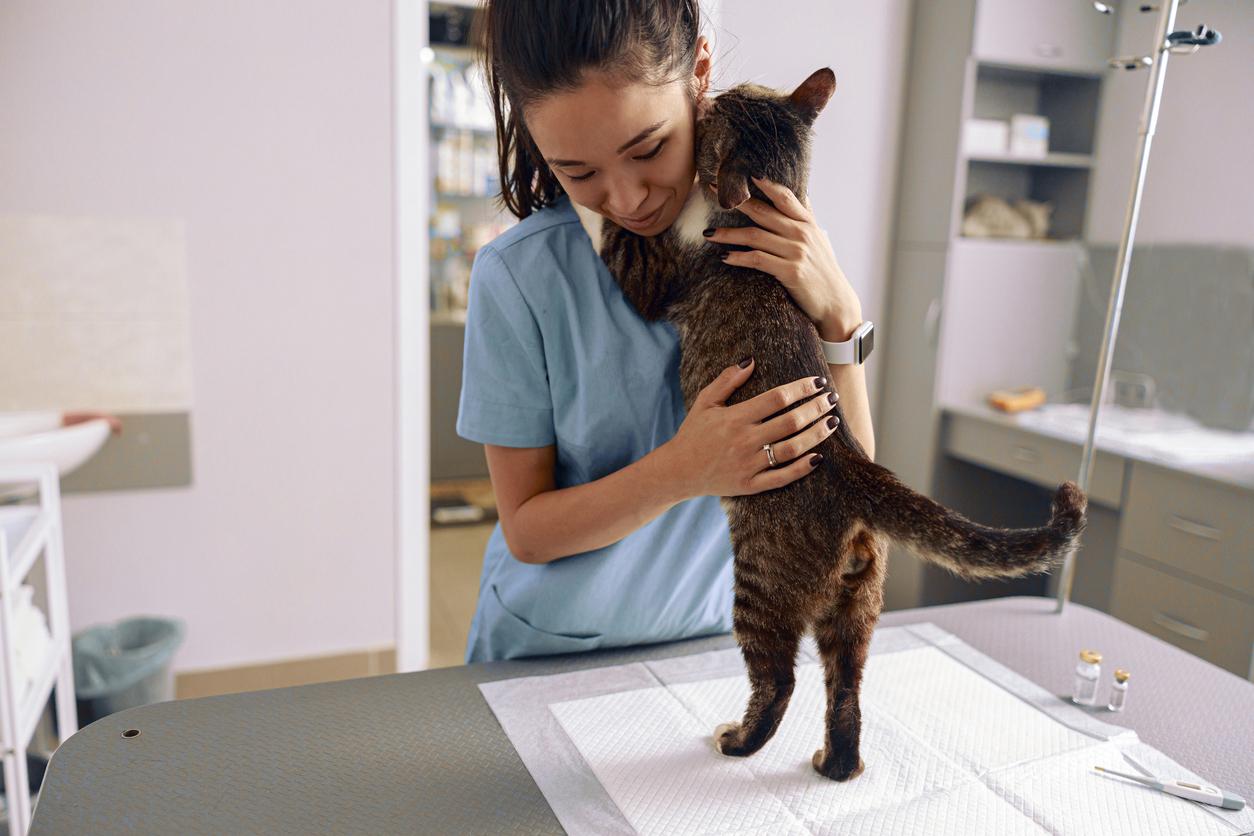Curious if Your Cat Caught a Cold? Here Are the Sleeping Positions to Watch out For
Many sleeping positions signify comfort, trust, and relaxation, but unusual positions may be a red flag to inform your vet.
Published March 21 2024, 4:02 p.m. ET

Cats are talented and prolific nappers (how else would they charge up for nighttime zoomies?) and tend to communicate their comfort and trust in their humans through their sleeping positions just as much as they communicate their needs or discomfort through their vocalizations.
If you suspect your kitty is sick, you may naturally wonder if their sleeping position will reflect their illness.
As cat lovers dedicated to investigating the ins and outs of feline behavior and wellness, we've got you covered. Read more below to learn how a sick kitty may present symptoms and what to watch for regarding their sleeping patterns.

Here are some of the most common cat sleeping positions when they are sick.
All cats have unique personalities and may present symptoms of illness slightly differently. According to VCA Animal Hospitals, sick cats generally have lower energy than normal.
Therefore, you may notice your cat's sleeping habits change, as I've had the unfortunate experience of observing. Sick cats may nap more frequently than usual when they typically engage in play time, and you might even witness sleeping positions to which your cat is unaccustomed.
"About the only time veterinarians worry about a cat's sleeping position is when it is restless sleep or sleeping in a manner that is wholly unusual for them. For example, cats that are experiencing pain may start sleeping in a way that keeps pressure off of a painful limb, sleeping in a hunched position, or sleeping in a way that looks as if they don't want to be touched," Dr. Jacqueline Brister, a veterinarian, tells Newsweek.
According to pet genetics company Basepaws, if your cat sleeps inside the litter box, this may indicate discomfort or illness.
Per Central Texas Veterinary Specialty & Emergency Hospital, you may discover your sick kitty unable to maintain a comfortable position to nap. They might also increase or decrease their daily sleep, and/or your cat may find new spots around the home to rest.
If you observe your cat curled up (aka "the croissant") with their paw covering their eyes, according to Purina, it could just be a maneuver to block the sunlight from their eyes. Especially because cats are notorious sun-seekers, this move may serve to keep them warm during colder months.

It is vitally important to tell a veterinary or urgent care team immediately if you notice your cat is suddenly "head pressing" while awake or in their sleep when they hadn't before done so. If your cat is lowering their head and pressing it against a pillow or wall, this may signal an urgent need for medical intervention.
"Head pressing is not a disease in itself, but it's a sign that something has damaged your cat's nervous system," Veterinarian Jennifer Grota, DVM, writes on PetMD.
How to tell if your cat isn't feeling well.
Per VCA, eye and nose discharge are some of the symptoms a sick cat may present. Your cat might also display what's known as their "third eyelid," which is a sign to visit the vet as soon as possible.
Unusual odor (including bad breath), vomiting, and diarrhea are additional signs that something is amiss.
According to VCA, a sick cat will likely forgo grooming. Changes in appetite and thirst are additional red flags that your cat may need medical attention.
Ultimately, if your cat is behaving differently than usual, sleeping restlessly in odd positions, or just doesn't seem to be acting like it usually does, it's best to consult with a vet just to err on the safe side.